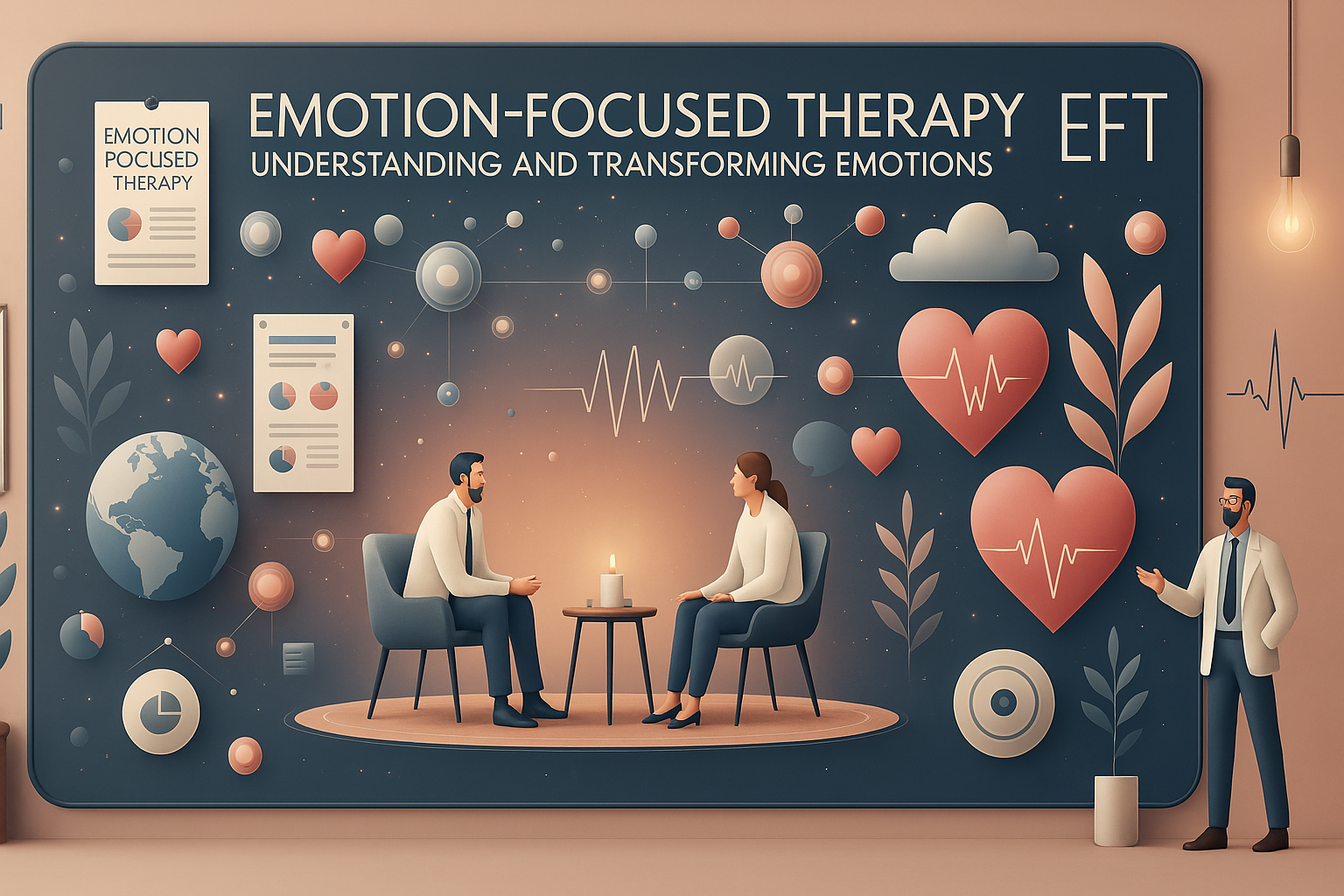Emotion-Focused Therapy (EFT)
For Individuals
For Couples
A Path to Emotional Awareness and Healing
Emotion-Focused Therapy (EFT) is a therapeutic approach designed to help individuals and couples better understand and process their emotions to promote healing, growth, and stronger relationships. Rooted in humanistic and experiential psychology, EFT emphasizes the importance of emotions in shaping personal experiences and relationships. By focusing on emotions as a source of strength and insight, EFT helps people uncover the deeper meaning behind their feelings and transform emotional pain into personal empowerment.
What is Emotion-Focused Therapy?
EFT is based on the idea that emotions are central to our sense of self and how we relate to others. It posits that emotional experiences often drive behaviors and shape how we interact with the world. When emotions are ignored, suppressed, or misunderstood, they can lead to distress, conflict, or unresolved issues.
EFT helps individuals:
•Identify: Recognize and name their emotions.
•Understand: Explore the origins and significance of these emotions.
•Transform: Use emotional awareness to create meaningful change.
Originally developed by Dr. Les Greenberg and Dr. Sue Johnson, EFT has been adapted for both individual therapy (to address personal issues like trauma or depression) and couples therapy (to improve communication and emotional connection).
Key Principles of EFT
1.Emotions as Guides:
•Emotions are seen as valuable signals that guide decisions and relationships. Understanding these signals is key to personal growth.
2.Emotion Transformation:
•Rather than avoiding or suppressing emotions, EFT helps clients access and work through them to foster healing and change.
3.Creating a Safe Environment:
•EFT emphasizes a supportive, empathetic relationship between the therapist and client to create a space where deep emotional exploration can occur.
4.Focus on Core Needs:
•By uncovering core emotional needs (like security, love, or autonomy), EFT helps clients address unresolved issues and build healthier patterns.
Benefits of EFT
EFT offers transformative benefits for both individuals and couples, including:
•Improved Emotional Awareness: Clients learn to identify and understand their emotions more deeply, leading to greater self-awareness.
•Healing Past Wounds: EFT provides tools to address unresolved emotional pain, particularly from childhood or past relationships.
•Stronger Relationships: Couples using EFT often experience enhanced emotional connection, improved communication, and greater intimacy.
•Better Emotional Regulation: Clients develop skills to manage overwhelming emotions and respond to challenges in healthier ways.
•Increased Self-Compassion: EFT fosters a kinder, more accepting relationship with oneself.
EFT in Individual Therapy
In individual therapy, EFT helps clients work through personal challenges such as:
•Trauma and Grief: Processing unresolved emotional pain and finding pathways to healing.
•Depression and Anxiety: Understanding the emotional underpinnings of distress and developing coping strategies.
•Low Self-Esteem: Reconnecting with self-worth by exploring and addressing critical inner voices.
The therapist supports the client in accessing deeper emotional experiences, helping them process these emotions and transform them into sources of strength and clarity.
EFT in Couples Therapy
In couples therapy, EFT focuses on improving emotional bonds and communication. It helps partners identify and express their emotional needs in a way that fosters understanding and connection. Common goals in EFT for couples include:
•Building Trust: Addressing past betrayals or breaches of trust.
•Improving Communication: Learning to express emotions openly and without blame.
•Strengthening Connection: Deepening emotional intimacy and reinforcing secure attachment.
Research has shown that EFT is highly effective in improving relationship satisfaction and reducing conflict.
How EFT Works
EFT typically unfolds in three stages:
1.De-Escalation: Clients identify negative patterns in their emotional responses and interactions. This stage focuses on understanding the root causes of distress and conflict.
2.Restructuring Emotional Experiences: Clients explore their core emotions and unmet needs, learning to express them constructively.
3.Consolidation and Integration: Clients apply new emotional insights to create lasting change and maintain healthier patterns.
Through this process, clients develop a deeper understanding of themselves and their relationships, empowering them to navigate challenges with greater resilience.
Who Can Benefit from EFT?
EFT is suitable for anyone seeking to improve emotional well-being or strengthen relationships. It is particularly effective for:
•Individuals struggling with unresolved emotional pain.
•Couples facing challenges in trust, communication, or intimacy.
•Families working to rebuild connections and improve dynamics.
Getting Started with EFT
If you’re interested in Emotion-Focused Therapy, consider finding a trained EFT therapist who specializes in individual or couples therapy. The process is collaborative and tailored to your unique emotional needs and goals.
Overview
Emotion-Focused Therapy offers a powerful approach to healing by helping individuals and couples connect with their emotions, transform pain into growth, and build more fulfilling lives and relationships. Whether addressing personal struggles or relationship challenges, EFT provides the tools to create meaningful, lasting change. Embracing your emotions as a guide rather than an obstacle can open the door to deeper self-awareness and stronger connections with others.

